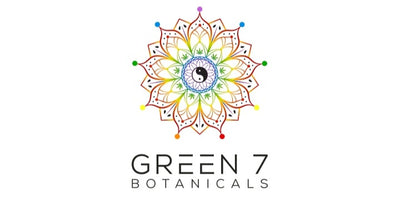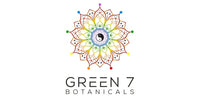10 TIPS FOR BUYING CBD Select products with quality ingredients that are lab tested. Look for products with clear labels showing the quantity and ratio of CBD and THC per dose, a manufacturing date, and a batch number.
In June 2018, the Food and Drug Administration (FDA) gave its blessing to “Epidiolex,” a purfied CBD pharmaceutical, for treating severe pediatric epilepsy. Six months later, Congress passed the Farm Bill, which legalized the cultivation of industrial hemp for many uses, including the production of biomass for CBD oil extraction. The 2018 Farm Bill defined hemp as cannabis with 0.3 percent tetrahydrocannabinol (THC) or less.
In theory, these momentous developments should make it easier to access CBD products. But many issues remain unresolved. How will the FDA regulate nonpharmaceutical, hemp-derived CBD? Will the FDA contiunue to privelege CBD isolates, while discriminating against artisanal, full spectrum, CBD-rich oil that may actually be more effecive than single-molecule pharmaceuticals? What policies should be implemented to ensure wide and easy access to high quality, lab-verified, artisanal CBD-rich products in addition to pharmaceutical options?
Project CBD encourages consumers to seek out products made from the unfertilized female flower tops of high-resin CBD-rich cannabis, which is much better suited for medicinal oil extraction than low-resin fiber hemp or industrial hemp grown for seed oil and protein. But the debate over sourcing cannabidiol from “marijuana” (any cannabis with more than 0.3 percent THC), rather than hemp is quickly becoming moot, as plant breeders have succeeded in developing high-resin cannabis varietals that satisfy the Farm Bill’s criteria for hemp – with CBD levels exceeding 10% by dry weight and THC measuring less than 0.3%. If grown, extracted, and processed well, such plants qualify as decent starter material for producing CBD-rich oil concentrates.
If you live in a state where medical marijuana is legal, get your CBD products from a licensed dispensary. If you don’t reside in a state or country with a robust medical marijuana or adult use program, you can access CBD products via online storefronts or, in some areas, from actual storefronts. But choosing among the many unregulated CBD brands – which “typically have less manufacturing oversight than kitty litter,” as one industry insider put it – can be problematic.
Many hemp-derived CBD products are mislabeled. A study reported in the Journal of the American Medical Association indicated that 69% of 85 products surveyed had an incorrect amount of CBD and/or THC on the product label.
Another survey found significant discrepancies among some of the leading hemp-derived CBD brands that falsely claim full-spectrum CBD-rich oil is in their products; lab tests of several samples revealed only one cannabinoid – CBD – was present, indicating that these products were made with a CBD isolate rather than a more efficacious whole plant CBD-rich extract.
Another problem: Some overly processed hemp-derived CBD products are tainted with toxic solvent residues, corn syrup, artificial flavors and colors, and other contaminants.
But good quality CBD-rich products are also available. Which products deserve our trust?
HERE ARE SOME TIPS WHEN SHOPPING FOR CBD:
- Consumer Reports suggests that you look for products made by companies in states that have legalized the recreational and medical use of cannabis “since they tend to have stricter standards.” If you live in a “CBD-only” state, choose CBD products made with American-grown hemp (from Colorado, Kentucky, Oregon, Montana, Vermont, Tennessee, etc.) rather than foreign sources. If possible, seek out CBD-rich products derived from high-resin cannabis grown sustainably in accordance with certified regenerative organic standards.
- Choose “full spectrum” CBD-rich oil extracts, not isolate, distillate or products labeled “pure CBD” or “no THC.” Full spectrum means it includes numerous cannabis compounds, including a small amount of THC. If THC is completely illegal in your state, opt for so-called “broad spectrum” CBD oil products that include other cannabis components but no THC.
- Look for product labels that indicate the amount of CBD and THC per serving – not just the total cannabinoid content for the entire bottle.
- Beware of companies that make explicit health claims about CBD products (this is not allowed by the FDA).
-
Check the Certificate of Analysis (COA) to verify that a product that has gone through independent lab testing for quality assurance. A CBD manufacturer should be able to produce a third-party COA that shows how their products performed on screenings for CBD, THC, and any contaminants. Some states also require—and many manufacturers provide—a QR code on the label of CBD products, so you can download their COA to your mobile device and inspect it before you try or buy. Here’s more information on how to read a COA.
- Avoid CBD hemp oil vape cartridge products with toxic thinning agents (such as propylene glycol and polyethylene glycol), flavor additives, and other harmful ingredients.
- Avoid poor quality CBD-infused gummies made with corn syrup and artificial colors.
- Think twice about brands that claim their CBD is derived from the seed and stalk of the hemp plant. CBD is not present in hempseed and barely any CBD is present on the stalk of the hemp plant.
- Beware of multilevel marketing schemes and companies that seek to sign you up right away for recurring purchases.
- Don’t be afraid to contact CBD companies directly and ask questions. And if you cannot reach them directly, try another brand.
Copyright, Project CBD. May not be reprinted without permission.
RECOMMENDED READING
Medical patients swear by it. Researchers are intrigued by it. Government regulators are flustered by it. And investors are head over heels for it. But what exactly is CBD oil?
A Project CBD featured video, see how cannabis oil is extracted and produced.
There is no single ratio or strain that’s right for everyone. A person’s sensitivity to THC is a key factor in determining the appropriate ratio and dosage of CBD-rich medicine. You need to find the combination of CBD and THC that works best for you.














